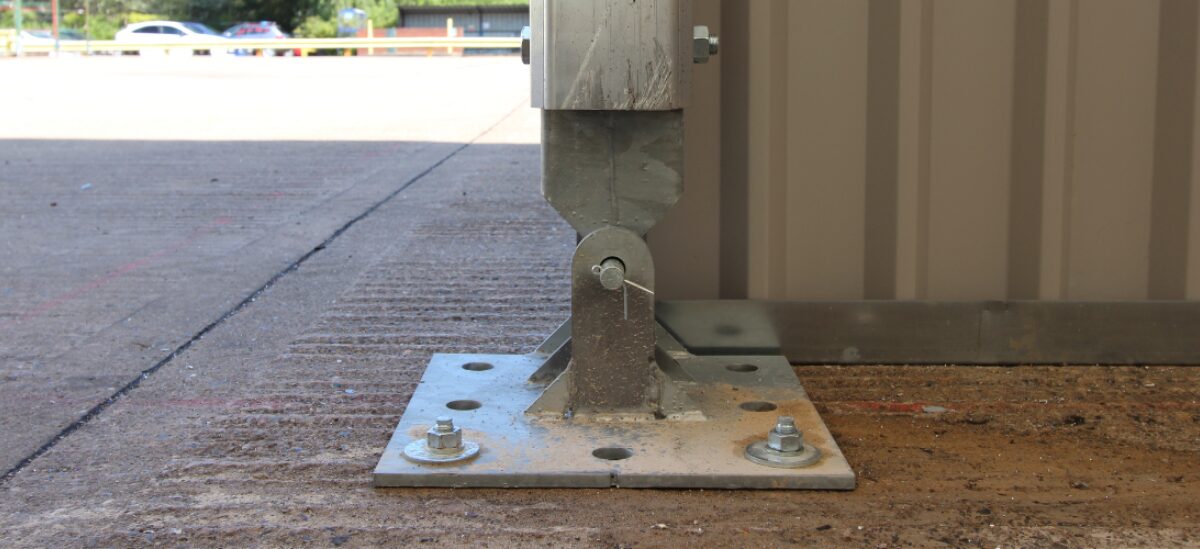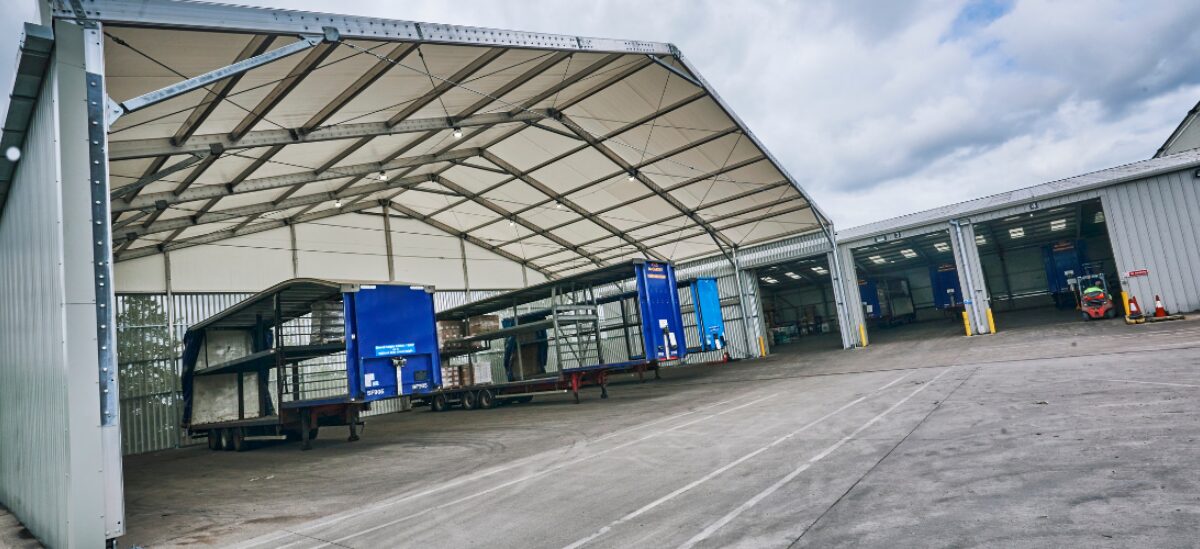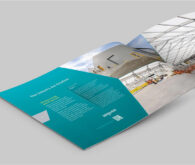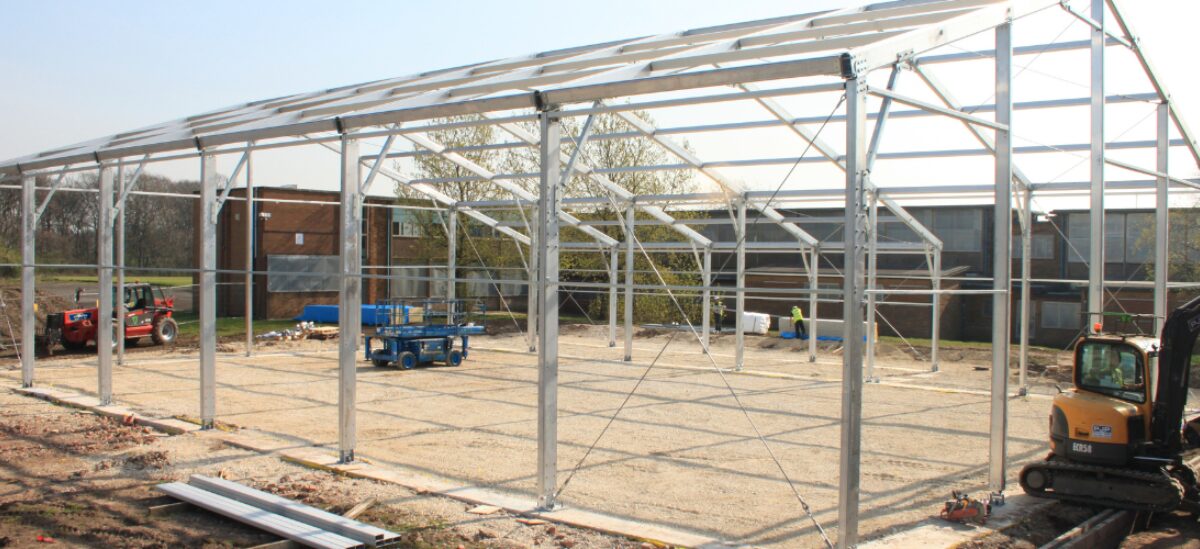Do Temporary Buildings Need Foundations?

Temporary buildings have become an essential solution across various industries, providing flexible and cost-effective options for space requirements. However, one common question that arises is whether these structures need foundations. In this blog, we’ll explore the groundwork and foundation needs for temporary buildings, the differences between foundation and non-foundation installations, and the relevant building regulations.
What are temporary buildings?
Temporary buildings are versatile structures designed to provide short- to medium-term solutions for additional space. They are commonly used in industries such as construction, manufacturing, and logistics, offering quick and efficient space expansion without the long-term commitment of permanent buildings. They are commonly used in industries such as construction, manufacturing, and logistics, offering quick and efficient space expansion without the long-term commitment of permanent buildings.

Do temporary structures need groundwork?
Groundwork refers to the preparation of the land on which a structure will be installed. While permanent buildings typically require extensive groundwork, including excavation and concrete pouring, temporary buildings often need minimal groundwork. The need for groundwork depends on factors such as site conditions, the size of the building, and the intended use of the structure.
The existing ground can be sufficient for most temporary buildings, provided it is level and stable. This reduces the time and cost associated with installation, making temporary buildings an attractive option for many businesses.
Does your site need foundations?
Not all temporary buildings require foundations. The decision depends on the nature of the site and the type of building being installed. A foundation may be necessary to ensure stability if the ground is uneven, soft, or prone to shifting. For larger or more complex structures, foundations can also provide additional support and durability.
Temporaru Building Lasting Solutions Brochure
Our new brochure places a firm focus on your industry. Be it lack of storage or warehouse space, production or maintenance facilities, or cover for your loading and unloading operations, our structures meet every requirement.

What is a temporary foundation?
Temporary foundations are support systems designed to be easily installed and removed, providing stability for temporary buildings without the permanence of traditional foundations. Common types include:
- Concrete Blocks: Simple, durable, and quick to install, providing a stable base for small to medium-sized structures.
- Concrete Ring Beams: Another alternative to concrete blocks, a ring beam offers the same support but are much quicker to install and require less labour and construction.
- Ground Anchors: Used to secure the building to the ground, especially on sites with loose soil or where wind load is a concern.
- Base Plates: Heavy-duty plates bolted directly to the ground, often used in conjunction with other foundation types for added stability.
These foundations are tailored to the specific needs of temporary buildings, offering a balance between ease of installation and structural integrity.
The Difference Between Foundation and Non-Foundation Installations
The primary difference between foundation and non-foundation installation lies in the stability and durability of the structure. Foundation installations are typically used when the site conditions require additional support or when the building is expected to remain in place for an extended period.
Non-foundation installations, on the other hand, rely on the existing ground and are often quicker and more cost-effective to deploy. These are ideal for short-term uses, where the building needs to be erected and dismantled quickly.

Building regulations for temporary structure
In the UK and Ireland, temporary buildings are subject to specific building regulations to ensure safety and compliance. These regulations may vary depending on the size and purpose of the structure. Temporary buildings are often exempt from some of the more stringent requirements that apply to permanent structures, but it’s important to ensure that all relevant regulations are met. If you require our expert team at Spaciotempo can assist you with organising your planning permission.
How Spaciotempo prepares your site
Before any installation, Spaciotempo conducts a no-obligation site visit to assess the ground conditions and other factors that could affect the installation. Our experienced account managers ensure that all potential issues, such as drainage or uneven ground, are identified and addressed before the installation begins. This careful preparation ensures that your temporary building is installed smoothly and efficiently, without unexpected delays or costs.
Spaciotempo’s in-house operations team manages every aspect of the installation process. Maintaining control over the project, ensuring that our high standards are being met at every stage. Whether your building requires foundations or can be installed directly onto the existing ground, our team has the expertise to handle even the most complex installations with ease.
Bespoke foundations for McCarthy Group
At Spaciotempo we like to showcase that we have real life working examples to back up what we’re talking about. We understand that not all sites are level we can work together to create a custom structure to best suit your needs. For example, one of our clients at McCarthy Group needed a canopy structure for their transportation requirements despite the site being sloped. Therefore, we created a bespoke design to ensure the structure ran perpendicular. With one side measuring 0.4m higher, this also meant site specific calculations were needed to ensure the canopy was structurally sound and compliant with safe and best practices. Learn more in our case study.
Understanding whether your temporary building needs foundations is crucial for ensuring its stability and longevity. While many temporary structures can be installed without the need for extensive groundwork or foundations, certain site conditions may require additional support. At Spaciotempo, we provide expert guidance from the initial site assessment to the final installation, ensuring that your temporary building is tailored to your specific needs.
